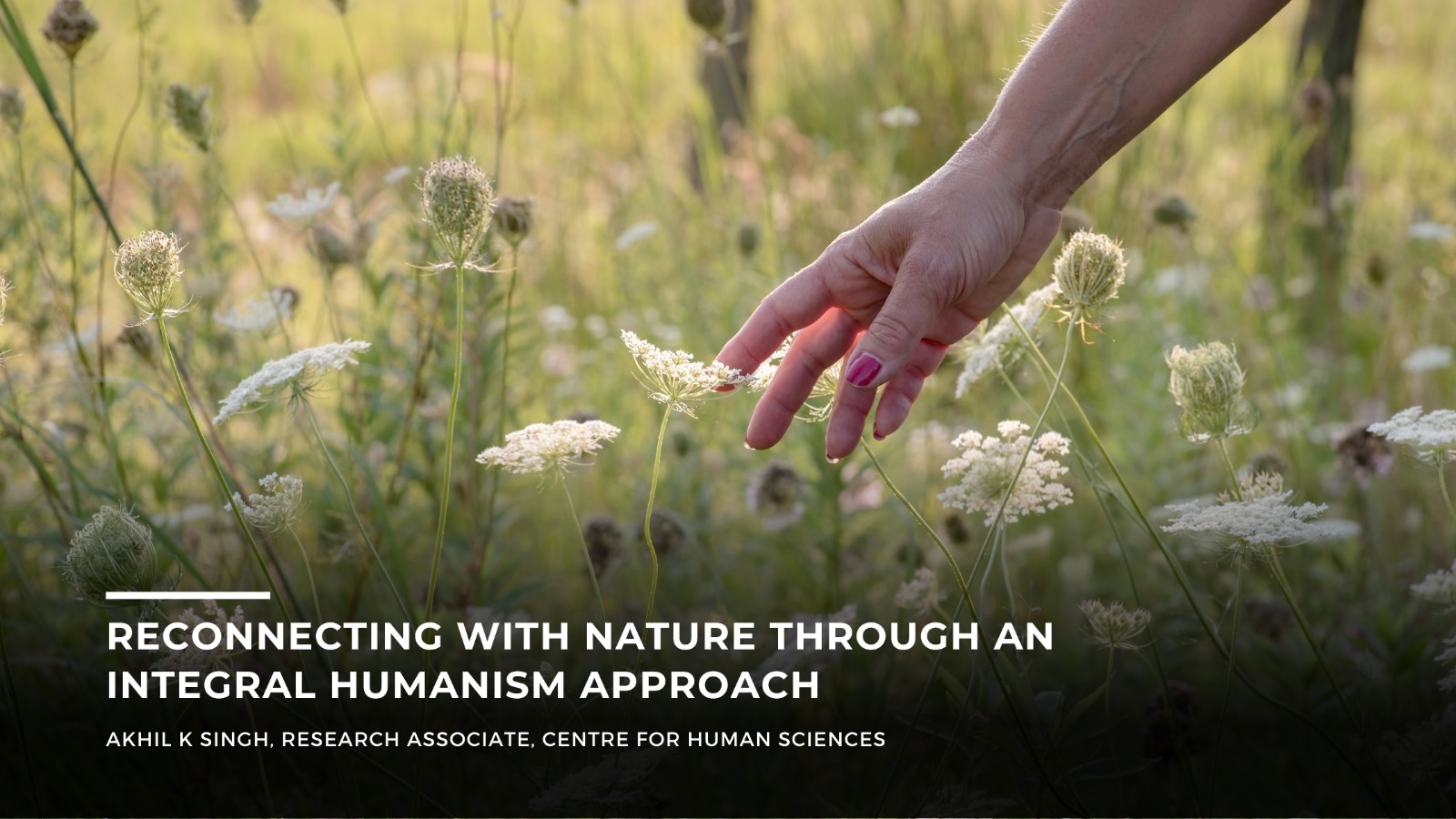The Earth is facing numerous environmental crises today, including climate change, deforestation, and air and water pollution. These problems primarily stem from our unsustainable production and consumption patterns, leading to the over-exploitation of natural resources and environmental degradation. As we grapple with these challenges, it is crucial to explore alternative approaches to development that promote sustainability and social welfare. One such approach is Integral Humanism, which can help us overcome our tendency to over-exploit nature by promoting a more sustainable and integrated approach to development.
As a passionate nature enthusiast and keen observer, I have always been concerned about the disconnect between humans and the environment. Our forgetfulness about our deep interconnectedness with nature makes us feel separate from it, leading us to exploit and use it for personal benefit. Consequently, our tendency to over-exploit nature has resulted in numerous environmental crises. I often wondered how we could change our understanding of our relationship with the Earth to ensure a sustainable future. When I discovered the concept of integral Humanism, I found a potential solution to this pressing issue.
My journey into integral Humanism began when I stumbled upon the works of Pandit Deendayal Upadhyaya, an Indian philosopher who championed this holistic approach to life. Integral Humanism emphasizes the interconnectedness of humans, nature, and the cosmos, seeking to balance life’s material, intellectual, and spiritual aspects. The more I delved into integral Humanism, the more I realized it could provide a framework for redefining our relationship with nature and overcoming our tendency to over-exploit the environment.
At its core, Integral Humanism is a philosophy that stresses the importance of preserving and promoting cultural and spiritual values while fostering social welfare and economic progress. It recognizes the interdependence of all living beings and the environment, emphasizing the need for developing a more responsible, compassionate, and sustainable relationship with the environment. So, how can understanding Integral Humanism help us overcome our tendency to over-exploit nature? Here are some ways:
Rediscovering Our Connection to Nature: Integral Humanism teaches us the importance of recognizing our deep connection with nature. We often forget that we are part of the environment, not separate entities that can exploit it without consequences. By embracing our interconnectedness with the natural world, we can develop a sense of responsibility and duty towards it. This profound understanding can enable us to become more conscious of our actions and their environmental impact, leading to more mindful consumption and better resource management.
Developing Self-Reliance: Integral Humanism emphasizes the importance of self-reliance and decentralization, helping us reduce our dependence on natural resources and promoting more sustainable production and consumption practices. By relying on local resources and encouraging decentralized decision-making, we can minimize our impact on the environment and promote ecological sustainability. As responsible citizens, we can actively encourage self-reliance by learning about sustainable practices such as composting, rainwater harvesting, and organic farming. Adopting these practices in our daily lives can reduce our environmental impact and promote sustainable living.
Promoting Holistic Development: Integral Humanism recognizes that economic progress is not the only goal but rather a means to an end that aims to improve the quality of life for all individuals, especially the marginalized and vulnerable. This perspective can help us develop a more balanced and integrated approach to development, prioritizing social welfare and environmental sustainability over short-term economic gains. To achieve harmony with nature, we need to balance our needs and desires with the well-being of the environment. This means stepping away from the relentless pursuit of material wealth and adopting a lifestyle that prioritizes the long-term health of our planet. In our lives, we can consciously adopt more sustainable practices, such as reducing waste, conserving water, and supporting local, organic agriculture. No matter how small, every action counts towards building a more sustainable future.
Cultivating Compassion for All Living Beings: One of the most transformative aspects of integral Humanism is its emphasis on developing compassion and empathy for all living beings, including animals, plants, and ecosystems. By nurturing these emotions, we can overcome our tendency to exploit nature for short-term gains and instead prioritize its well-being. Adopting a more compassionate mindset may lead us to make more eco-conscious choices, such as supporting conservation efforts, adopting a plant-based diet, and reducing our carbon footprint. Fostering a sense of compassion for all life forms is a crucial step in building a more sustainable relationship with the environment. Consequently, understanding Integral Humanism may help us to realize the importance of balancing material progress and spiritual growth. Through this philosophy, I’ve learned to recognize the limitations of material wealth and focus on nurturing my intellectual, emotional, and spiritual well-being.
Therefore, in sum, by cultivating a more balanced approach to life, we can develop a deeper appreciation for the natural world and our role in protecting it. We should also strive to share this understanding with others, inspiring them to seek balance and harmony with the environment. As a result, understanding Integral Humanism can help us overcome our tendency to over-exploit nature by promoting a more responsible, compassionate, and sustainable relationship with the environment. We all can contribute to this effort by developing self-reliance, promoting holistic development, and preserving cultural and spiritual values. By adopting these principles in our daily lives, we can help build a more just and sustainable society where people and the environment can thrive together.
– Akhil K Singh Research Associates, Centre for Human Science, Rishihood University,

